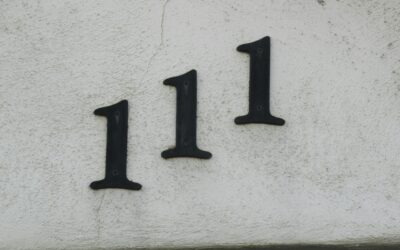There is a popular Jewish toast “L’Chaim” meaning “to life.” Jews say L’Chaim at celebrations such as weddings and bar mitzvahs in anticipation of blessings and of all good things to come. Clearly, life has a deeper meaning to the Jews, and investigating the Hebrew word as well as Scripture can give us more insight.
So, what’s the Hebrew word for life?
The Hebrew word for life is Chayim. It comes from the word chai, meaning living things. According to the Bible, God is the source of life and He gives us this gift to love and serve Him. If we tap into the Source, we find happiness, joy, peace, and all the gifts of the Holy Spirit.
Unraveling the Hebrew Word For Life: Chayim
The Hebrew word for life Chayim comes from chai. Chayim combines with the name of our LORD Elohim to form Elohim Chayim (the Living God). The word chai consists of two Hebrew letters, Chet and Yud.
The pictograph of Chet is a wall or fence and represents life. On the other hand, the pictograph of Yud is a hand and signifies worship and humility. The Hebrew numerical values for Chet and Yud are 8 and 10, respectively. When the two numerical values are combined, they add up to 18, which represents life, prayer, and worship.
We first see the word life in the creation process. The Bible explains that man was created from dust and became a living thing when God gave him the breath of life (Genesis 2:7). God created every living thing from His breath, but the moment He takes it away, we die and return to dust (Ecclesiastes 3:19; Psalms 104:29). So, we need the “breath of life” from God, who is the ultimate source, to remain alive.
Eternal Life
We see the link between eternal life and heaven in the Old Testament when Moses tells the Israelites to choose life (Deuteronomy 30:19). Moses explains further that the key to life is to love and obey God. But if our heart turns away and we worship other gods, we will perish (verse 17). In the old covenant, the Israelites were commanded to obey God and keep the Law. In return, they would receive an abundant life.
The word chayim in the New Testament refers to Jesus Christ the provider of eternal life (John 3:36; 5:12). We often use the word “afterlife” to mean life has ended, but there is a continuation. This contrasts the Biblical teaching, which tells us that life in Christ is eternal, to mean it doesn’t end. To paint a clear picture of this is the idea of a body and soul. When God breathes life into a body formed from dust, it becomes a living thing with a soul.
When we die, the body ceases to exist, but the soul remains in an external existence. So, the death of the body does not in any way affect the existence of the soul. That’s why Chayim means multiple phases of a single eternal life.
Book Of Life
The Book of Life contains names of those who have received eternal life, i.e., believers who will live with God forever in heaven. Moses knew about the Book of Life when he pleaded with God atop Mount Horeb to forgive the children of Israel after they committed the great sin of worshiping the golden calf.
Moses also requests that if God would not forgive their sins, He should blot him out of the Book. The Lord’s response to Moses’ request was: “Whoever has sinned against me, I will blot out of my book” (Exodus 32:31-33). Here, we also learn that God is the author of the Book of Life and the giver of eternal life. We also get an idea of the kind of content likely to be recorded.
What is Recorded in the Book of Life?
Everything a person does (good and bad deeds) God records in the Book of Life. David speaks of “all the days ordained for me were written in your book before one of them came to be” (Psalm 139:16). The psalmist even remarks that misery and tears are also documented and even goes further to ask God a rhetorical question: “Are they not in your records?” (Psalm 56:8). The Bible also tells us that in the end times, those whose names are in the Book will be delivered (Daniel 12:1).
Paul also states a similar message when he says that the names of victorious believers will be in the Book of Life (Philippians 4:3). Scripture further states that the fate of those whose names are not written in the Book of Life is the Lake of fire (Revelation 20:15).
What Must We Do To Be Inscribed Into The Book Of Life?
Considering how important it is that our names are written in the Book of Life, what should we do to ensure that happens? The obvious answer would be to avoid sin. But since man is sinful in nature, does that mean God will blot out everyone from the Book of Life? Of course not! God is merciful and loves all His creations. That’s why He provides a means to have eternal life through atonement.
In the Tanakh, the Israelites had the Day of Atonement to pray and ask God to forgive their sins. In reference to this special occasion, the Bible says, “For on this day shall atonement be made to cleanse you before the LORD from all your sins” (Leviticus 16:30).
All Israelites had to do their part to atone for their sins. First, the high priest was to purify himself and enter the holy of holies with a lamb/goat and confess the sins of the Israelites. God would then consume the sacrifice to show forgiveness of sin. Second, the people were to “afflict themselves” or practice self-denial and refrain from work. Accepting the sacrifice was God’s way of inscribing the Israelites in the Book of Life and giving them eternal life.
Jews refer to this day of atonement as Yom Kippur. They pray from Rosh Hashanah to Yom Kippur and say Kotvenu b’sefer he-ḥayyim meaning “Inscribe us in the Book of Life”. They also say to each other, “May you be inscribed for a good year.” So, to have eternal life, we must be cleansed of sin.
Conclusion
God is the source of all life. If we are not living in honor of God and acting in a way that pleases Him when we die, we will not have eternal life because our names will not be in the Book of Life. So, we should commit to God in faith, love, and obedience.




